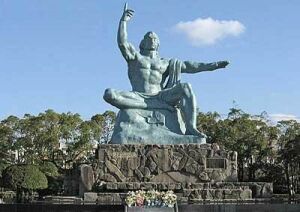|
Well, maybe one word ... perhaps two. I can say arigato at appropriate times, and I recognize the respect with which they called me Laurence-san. But beyond that, the language barrier between us was complete, total, and impenetrable.
What's the opportunity of a language barrier? Actually it's a gold mine. Throughout the day with them I kept coming up against a fundamental distinction of what it is to be human. I kept coming up against "who I am is my word". In other words, I kept coming up against "who I am is language". That's distinct from "who I am is a language".
It's very subtle. I'm not the English language although I speak it. Who I am is language. They're not the Japanese language although they speak it. Who they are is language. Even though who I am is language, and who they are is language so we are the same, if I can't speak their language and they can't speak mine, how do I be with them? The distinction is disconcerting.
Being unable to speak Japanese with them, I spoke English. When it became embarrassingly obvious they couldn't understand a word I was saying, I spoke slower. Then when that didn't work, I spoke slower and louder. I know how totally asinine that is. But I did it anyway. They still didn't understand. They couldn't understand. All they got was my frustration. That, plus the fact Laurence-san speaks English slowly and loudly.
